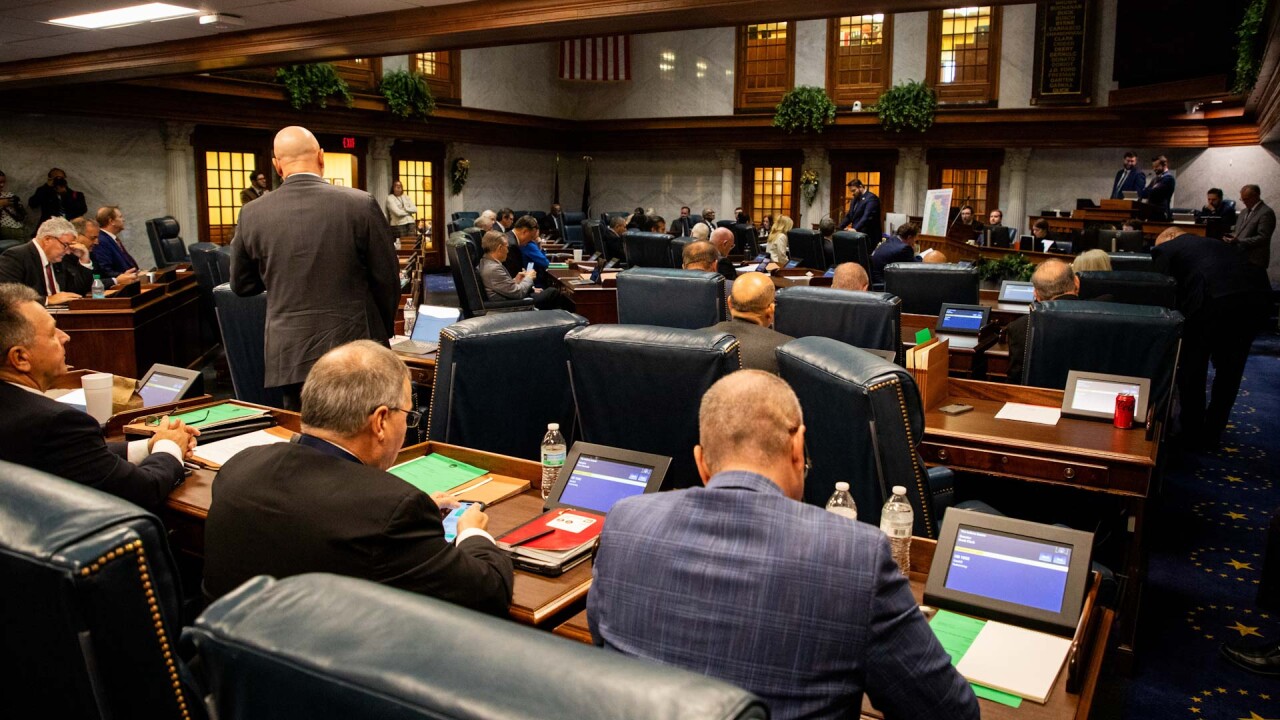Want unlimited access to top ideas and insights?
Midwest voters will make a range of decisions in the November election from ballot measures that impact their schools' fiscal fortunes to governor picks that will shape future decision making.
The governor's offices in Illinois, Iowa, Michigan, Minnesota, Nebraska, Ohio, South Dakota, and Wisconsin are on the Nov. 8 general election ballot.
Incumbents in all but one state are seeking re-election with Illinois, Michigan, and Wisconsin currently held by Democrats and Iowa, Nebraska, Ohio, and South Dakota held by Republicans. Nebraska Gov. Pete Ricketts is precluded from running due to term limits.
At least five billion dollars in borrowing and tax authority are on the line.

Kansas City, Missouri, voters will cast a decision on
The first Kansas City question asks voters to approve $125 million of general obligation borrowing to finance improvements to parks, recreation, and entertainment facilities. About $45 million would go finance deferred needs at the Kansas City Convention Center.
"Since 2016, Kansas City has missed out on an estimated $62 million in economic impact directly tied to the current condition of the Kansas City Convention Center. Without additional investment, Kansas City is at risk of losing additional market share to peer destinations, which would further erode the economic impact of this community asset," the city said in a statement.
The second ballot question would authorize $50 million in GO borrowing to finance housing creation and preservation; transitional and supportive housing; homeownership opportunities; and blight removal. The bond funding would be used to leverage existing federal funding.
It would mark "the single largest investment in affordable housing ever made by Kansas City to ensure folks of all income levels can call Kansas City home," said Kansas City Mayor Quinton Lucas.
Voters in Cook County, which includes Chicago, will decide on whether to allow the Forest Preserve District of Cook County to raise its tax levy to generate more funds to improve open lands, take the system's pension fund off the road to insolvency, and stabilize its shaky financial condition.
"If passed, that increase in income would include funds that are planned to be allocated to resolve the Forest Preserves' pension shortfall," the district said. "We have cut costs, doubled non-tax revenues, and implemented a broad range of best practices to invest our limited resources."
The district provides the land that houses the zoo and the garden and nearly one fifth of its annual budget is dedicated to the operation of the Zoo and Garden.
The district'sunfunded pension liabilities increased to $145.4 million in 2020 from $139.9 million and its funded ratio slippedto 59.1% from 59.3%. The fund assumes a 7.25% rate of return and exceeded that at 11.4% for 2020 compared to 18.6% in 2019.
Under the current funding policy the fund is projected to run out of assets by 2042 if all future assumptions are met and no additional contributions are made.
"The County Board should be prepared to take swift action if the Forest Preserves' upcoming property tax referendum does not pass," Chicago Civic Federation President Laurence Msall said in the organization's review of the county's 2022 budget.
School districts in Iowa, Illinois, Michigan, Minnesota and Wisconsin have more than 30 bond questions on the Nov. 8 ballot.
In Illinois, at least five school districts are asking voters to authorize bonding totaling $400 million:Batavia Community School District Number 101 is asking for $140 million, Cass School district Number 63 is seeking $12.8 million, Downers Grove School District Number 58 is asking for $179 million, Mahomet-Seymour Community Unit School District Number 3 is asking for $59.4 million and North Shore School District Number 112 is seeking $6 million.
Twenty Michigan districts are asking for about $2.1 billion of borrowing authority led by Troy School District seeking $555 million followed by Southfield Public Schools seeking $345 million, Okemos Public Schools seeking $275 million, Clarkston Community Schools seeking $197.5 million, Saline Area Schools asking for $180 million, and Anchor Bay School District asking for $169.3 million.
In Wisconsin, voters will see 77 school referendum questions from more than 50 districts with 38 asking for authorization to issue debt and others asking to exceed tax revenue caps on a recurring or non-recurring basis with a total $2 billion impact, according to the Wisconsin Education Association Council.
Officials said it's a record level of requests.
The group said the revenue cap questions stem from insufficient support from the state on funding. Gov. Tony Evers, a Democrat, has sought higher spending levels but the GOP which controls the legislative has limited those increases with some districts required to go to lower property taxes.
"Parents and educators work together every day to give children the best education possible, and it's time our legislature take action to fix how public schools are funded," Peggy Wirtz-Olsen, WEAC's president, said in a statement.
La Crosse School District is asking for $194.7 million to purchase land, construct a new high school and make renovations and improvements to the old high school for use as a middle school. Wauakee School District is asking for $175 million of bonding for new schools. Appleton Area Schools are requesting $129.8 million for building projects. Green Bay Area Public School District is asking for $92.6 million of authority for various projects.
Wisconsin voters signed off on $1.7 billion of local school bond and revenue requests in the April 2020 elections for an approval rate of 87% which was far better than in most past cycles, according to the Wisconsin Policy Forum.
In past elections, the
Statewide ballot measures cut across a wide swath of issues.
North Dakota voters will decide whether to legalize the possession of cannabis for adults and establish term limits for the governor and lawmakers. Michigan voters also will vote on legislative term limits.
Illinois voters will cast a vote on a constitutional amendment on collective bargaining that would cement in the constitution the right for employees to organize and bargain collectively through representatives of their choosing to negotiate "wages, hours, and working conditions and to protect their economic welfare and safety at work."
The amendment would prohibit any so-called right-to-work laws from being enacted that interfere with agreements that require union membership, which supporters say is needed. Opponents say the change would give labor unprecedented bargaining powers that will result in property tax hikes to meet union wage and benefit demands.
In Missouri, voters will decide a constitutional amendment that would expand the state treasurer's authority to allow investment of state funds in highly rated municipal securities and to authorize the state legislature to pass laws allowing the treasurer to invest in "other reasonable and prudent" financial instruments and securities.
Currently, the state treasurer can invest in federal and agency bonds, time deposits in Missouri banks, repurchase agreements, or short-term unsecured corporate debt. On average, the state treasurer has $3.6 billion invested daily.





